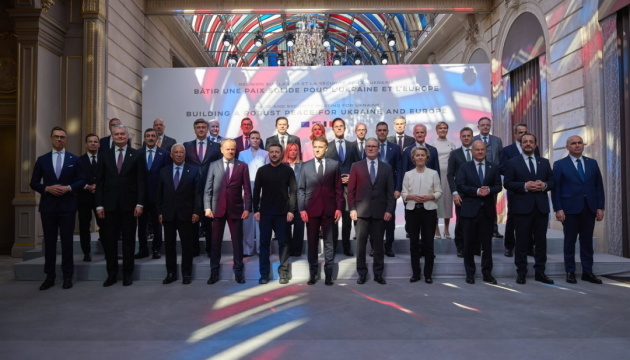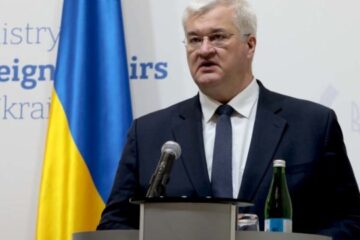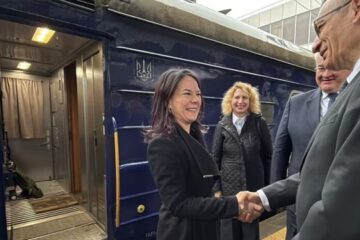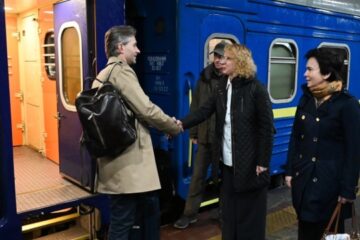The Coalition of the Willing summit in Paris has confirmed support for Ukraine. But the key question is whether Europe has enough political will to implement it?
Leaders from nearly 30 countries and NATO and EU chiefs met in Paris Wednesday to discuss bolstering aid to Kyiv and deploying European troops to secure long-term peace. In addition to the EU and NATO, the meeting brought together government representatives of Turkey, Canada, Australia, and New Zealand, as well as Ukrainian President Volodymyr Zelensky who arrived in the French capital to attend the gathering in person.
The agenda focused on the following key strategic areas:
– continued support for Ukraine in its fight against Russian aggression;
– possible deployment of an international military contingent on the territory of Ukraine as part of a future peace deal.
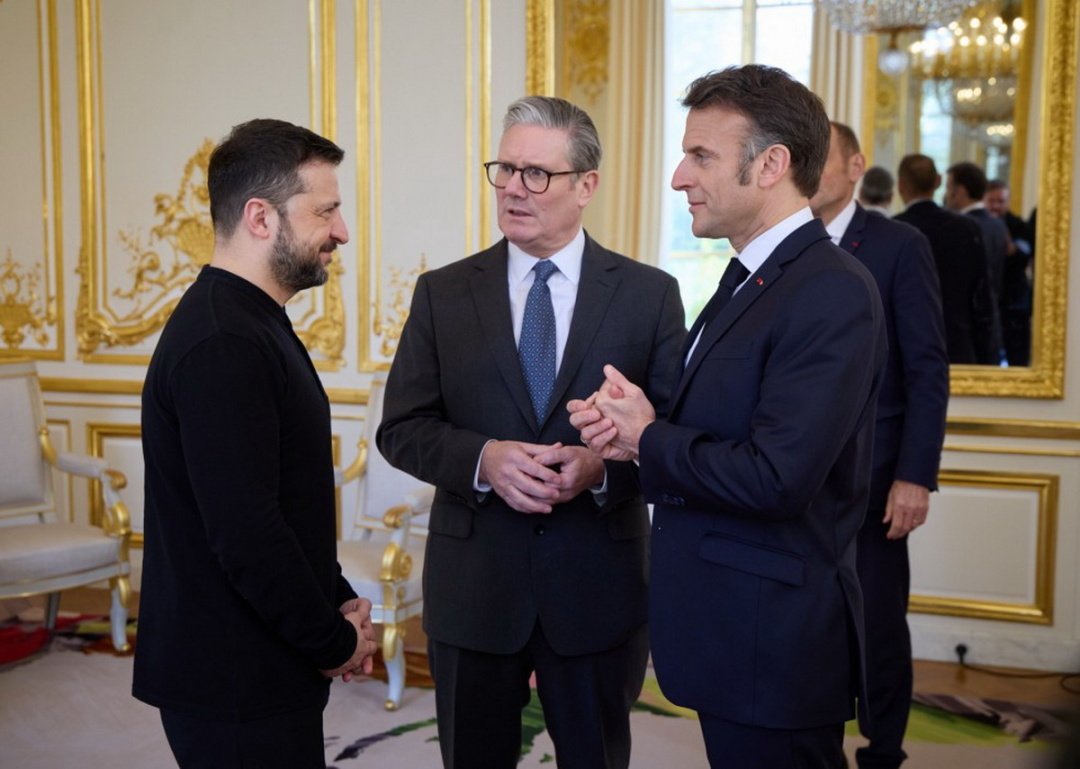
The importance of this meeting cannot be overstated, and we should pay tribute to the French President who initiated its holding. At the same time, Polish Prime Minister Donald Tusk, even before the summit began, made a pertinent remark about the effectiveness of such events: “There are indeed a lot of these meetings, summits, video conferences, trips dedicated to the Ukrainian issue. Some will say that there are too many of them. And it seems that the number of meetings does not lead to progress. Let’s not go crazy thinking that if there are 56 summits and video conferences, peace will come faster”, Tusk said.
This opinion is shared by many analysts, who emphasize that discussions, no matter how important they are, should produce concrete results, and not just multiply the number of meetings. However, let us return to the summit itself and its outcomes.
Bolstering military and financial assistance to Ukraine
The summit participants paid particular attention to the issue of increasing military and financial support to Ukraine. European Commission President Ursula von der Leyen stressed that all efforts are aimed at meeting the needs of the Ukrainian army and economy as soon as possible. She confirmed that the EU remains committed to its share of the G7 loan for Ukraine.
The Coalition of the Willing leaders highlighted the need for an urgent increase in assistance, including armaments, financial support and long-term security guarantees. Joint military exercises and equipment aid were discussed, which will help strengthen Ukraine’s defense capabilities. British Prime Minister Keir Starmer noted that achieving peace is only possible through increased military pressure on Russia. He also announced that the UK Defence Secretary will chair the next Ukraine Defence Contact Group on 11 April, to marshal more military aid and keep Ukraine in the fight.
Maintaining and toughening sanctions against Russia
Ukrainian President Volodymyr Zelensky stressed that sanctions should remain in place until Russia stops its aggression and occupation of Ukrainian territories. French President Emmanuel Macron echoed this position, saying: “It is not yet the time to lift sanctions.” It should be noted that this is precisely the demand Russia is pressing for in negotiations with the United States. Therefore, Europe’s determination not to amend or lift the sanctions on Russia is very pertinent.
European leaders discussed toughening sanctions against Russia to force it to the negotiating table. Ursula von der Leyen emphasized that the ultimate goal of sanctions is to achieve a just and long-lasting peace.
Deployment of an international military contingent to Ukraine
One of the key discussions at the meeting was about deploying European “reassurance forces” to Ukraine. These forces would “act as a deterrent against potential Russian aggression,” French President Emmanuel Macron told reporters during a press conference following the “Coalition of the Willing” summit for Ukraine in Paris.
However, these reassurance forces “are not intended to be peacekeeping forces” as they will not replace the Ukrainian Armed Forces and will not be positioned on the frontlines but instead in “strategic towns” and bases.
This proposal “will be worked on by our military chiefs of staff” in the coming weeks to determine “the map and format” of these deployments, the French President said.
“These reassurance forces would in no way replace or reduce our efforts on NATO’s eastern flank”, but “would come in addition”, said Macron.
British Prime Minister Keir Starmer, for his part, said that London this week “hosted over 200 military planners from 30 countries. Coming forward with contributions on everything from logistics and command and control, to deployments on land, air and sea. That work continues at pace”.
France suggested that European countries may deploy “a sizable force” to central Ukraine “somewhere along the Dnieper River” and away from the frontline once a peace deal is reached.
Other options under consideration include stationing peacekeeping forces in western Ukraine or a neighboring country.
French President Emmanuel Macron ruled out deploying European peacekeepers along the front lines, saying that their presence is not intended to provoke any form of confrontation with Russia but would serve as a deterrent, protecting key infrastructure such as nuclear power plants and seaports.
However, Macron said that European peacekeepers, if deployed, would be prepared to respond to any aggression.
“If there was again a generalized aggression against Ukrainian soil, these armies would, in fact, be under attack, and then it’s our usual framework of engagement,” Macron said after talks with Ukrainian President Volodymyr Zelensky on Wednesday.
“Our soldiers, when they are engaged and deployed, are there to react and respond to the decisions of the commander in chief and, if they are in a conflict situation, to respond to it.”
Strengthening European defense autonomy
The European Union has unveiled the ReArm Europe Plan, also known as Readiness 2030. This is a comprehensive initiative aimed at bolstering European defense capabilities and cooperation with Ukraine. The plan is a response to the rapidly deteriorating strategic environment for the EU, which includes a range of escalating threats and challenges such as Russia’s military invasion of Ukraine, geopolitical instability in the region, cyber-attacks, and acts of sabotage.
The ReArm Europe Plan /Readiness 2030 enables spending of over €800 billion on defense.
The plan identifies seven critical capability areas where gaps need to be addressed:
Air and missile defense – developing integrated, multi-layered systems against the full spectrum of air threats.
Artillery systems – advanced fire systems for precise, long-range attacks against land targets.
Ammunition and missiles – building strategic stockpiles and enhancing production capacity.
Drones and counter-drone systems — unmanned systems and technologies to enhance surveillance and operational capabilities.
Military mobility – enhancing infrastructure to facilitate rapid movement of troops and equipment across the EU.
Artificial intelligence, quantum computing, cyber security, and electronic warfare – developing advanced technologies for defense applications.
Strategic enablers and critical infrastructure protection – including strategic airlift capabilities, secure communications, and infrastructure protection.
The Member States will decide which areas will receive funding. However, it would be possible to benefit from funding in other areas, such as armored vehicles.
The summit leaders stressed that Europe must be prepared to act independently to protect its own interests, without relying solely on partnership with the US. Macron stressed that while close cooperation with Washington remains important, Europe must develop its own strategic autonomy and the ability to respond quickly to security challenges.
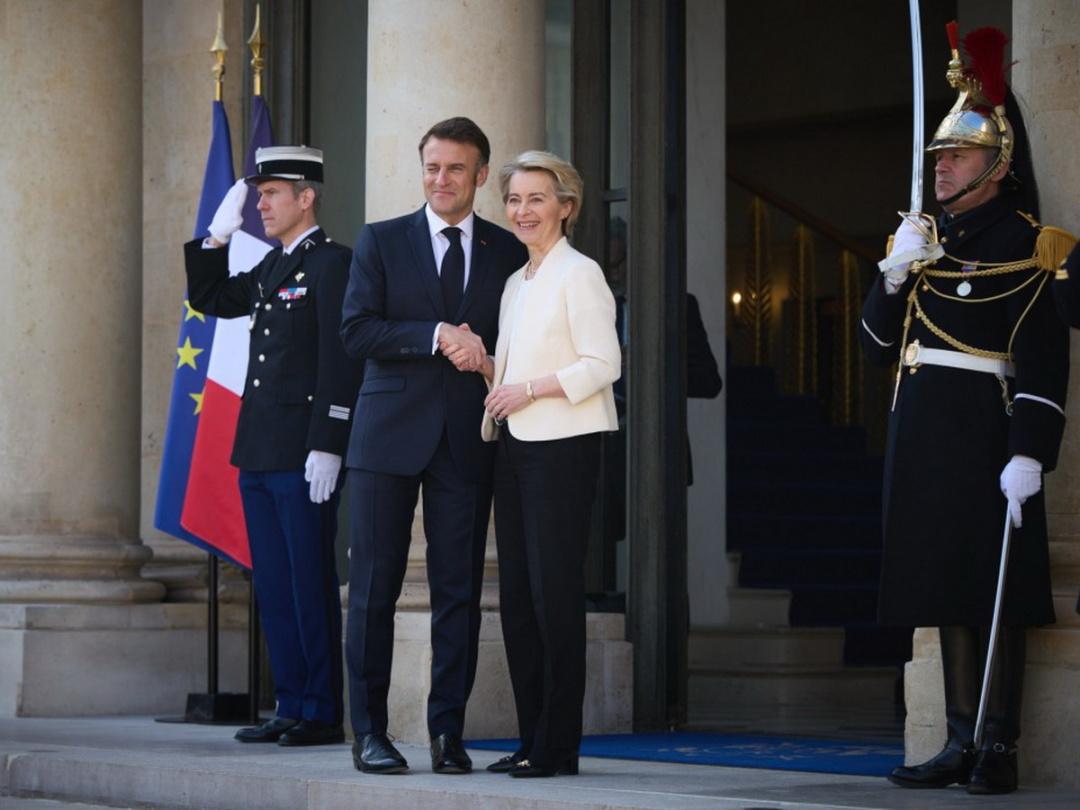
Declaring support not only in words: those willing must become more committed
Political scientist Serhiy Taran emphasizes: in order to send the “deterrence and reassurance forces” to Ukraine, a possibility discussed at the “coalition of the willing” summit”, these forces need to be above all available. So far, the only real “deterrence force” against the Russian aggression is in Ukraine and has been fighting there since 2014.
“The Europeans are declaring their intentions to build up their own military forces, and this is the right step. But while these intentions remain at the level of statements only, “the willingness” looks more like verbal maneuvers about “200 planners” from “30 countries” who are “already ready” to deploy “peacekeepers” along the Dnieper or in neighboring states and, if necessary, “fight back,”” he notes.
According to Mr Taran, even the most determined European peacekeepers will not cross the Ukrainian border without getting security guarantees from Trump. “And he won’t give them, because it goes against Putin’s interests. In addition, Trump understands perfectly well that if any of the Europeans dares to act without his consent, he will quickly put them in their place, threatening to withdraw from NATO.”
Europe has lost ground in world politics, having relied for decades either on the United States who financed security with record high budgets, or on gas cooperation with Russia.
“The good news is that Europeans have realized the need to independently strengthen their defense capabilities. The bad news is that it can take too much time from realization to action. So far, the summits of the “willing” look more like psychotherapy sessions, where participants discuss their fears and make promises to each other. Real changes are possible only at military factories and training grounds,” Taran emphasizes.
Political analyst Ihor Reiterovych assesses the summit as successful for three reasons:
– Ukraine will receive new aid packages.
– The summit signals to the Russian Federation that international support for Ukraine remains in place.
– This is a demonstration of Europe’s independent role in geopolitics, which requires taking into account its position on any potential negotiations with the Russian Federation.
“Europe’s sanctions policy is also a strong message for Washington: the US cannot negotiate with Moscow behind Europe’s back, because it is the EU that will make decisions on easing or tightening sanctions,” the expert emphasizes.
Such measures are valuable for Ukraine in that they demonstrate international support and balance out the position of the US as a mediator.
Mr Reiterovych furthermore notes that Kyiv is increasingly coordinating its actions with Paris, Berlin and London in its confrontation with the Russian Federation. “These countries understand that support for Ukraine should not only be maintained, but also strengthened. Without Ukraine, Europe will not be able to effectively prepare for possible future aggression from Russia.”
The analyst predicts the formation of new military-political alliances in Europe, which will co-exist on a parallel track with NATO: “After the war, several regional alliances aimed at containing Russia may emerge.”
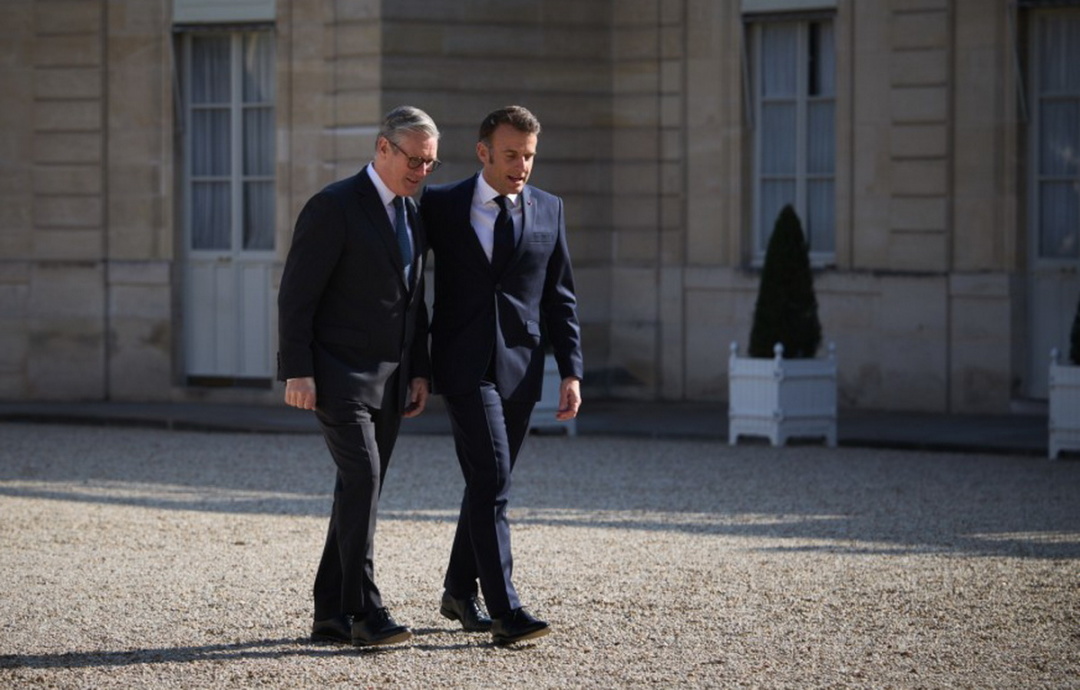
UK Prime Minister Keir Starmer and French President Emmanuel Macron
Political analyst Oleksiy Holobutsky warns: only time will tell whether the “coalition of the willing” summit will become an effective tool for influencing the Kremlin. However, the latest statements by European leaders about the impossibility of lifting sanctions on Russia testify to the EU’s determination.
“All that means is that this coalition did not turn into a club of impotent people who make nothing but right statements. Determination in words is good, but the ability is what matters most. History suggests that European leaders often act late or do not move on to real action at all,” he emphasizes.
The situation is complicated by the ceasefire negotiations that the US is conducting with Russia and Ukraine, while Europe is trying to take a more visible role in this process.
“Europe has already stated that sanctions will not be lifted until Russia withdrew its troops from the territory of Ukraine. This is a serious statement that may affect Trump’s position, forcing him to decide between supporting Ukraine or the Russian Federation,” adds Mr Holobutsky.
However, it further developments are difficult to predict, especially given the internal instability in the United States.
“The chaos and incompetence that reign in among Trump’s entourage undermine the credibility of logical reasoning. Events should seem to unfold according to a certain pattern, but personal interests and shortcomings of specific people can change everything,” the expert concludes.
Conclusion notes: The Paris summit proved the international coalition remains united in supporting Ukraine. Strengthening sanctions, military assistance, and discussions on security guarantees indicate the international community is serious on its intentions regarding Russia’s war in Ukraine. However, the practical implementation of the decisions made requires further coordination and concrete steps to be made. Failing this, words will remain just words.
Myroslav Liskovych, Kyiv
Source: The Coalition of the Willing Paris summit: resolute words need to be backed up with resolute action!

